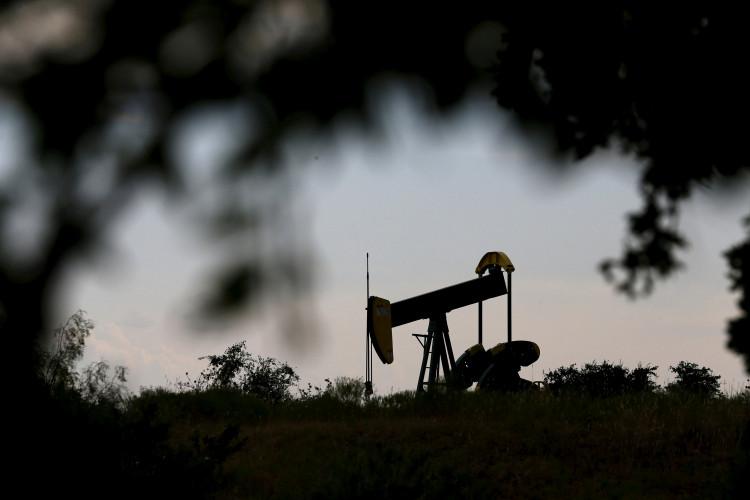Oil prices plunged more than 6% on Thursday as traders and analysts issued a swift verdict on President Donald Trump's sweeping new tariffs, viewing them as a significant drag on global growth and fuel demand. The decline came despite a carveout exempting oil, gas, and refined products from the tariffs, signaling investor concerns over broader economic impacts.
U.S. West Texas Intermediate crude futures dropped $2.69, or 3.75%, to $69.02 a barrel, while Brent crude fell $2.66, or 3.55%, to $72.29. The XOP exchange-traded fund, which tracks the U.S. oil and gas exploration and production sector, slid 5% in premarket trading.
"The U.S. tariff announcement clearly caught markets off guard. Pre-announcement speculation suggested a flat 15-20% tariff, but the final decision was more hawkish," said Yeap Jun Rong, strategist at IG. "For oil prices, the focus now shifts to the global growth outlook, which is likely to be revised downward due to these higher-than-expected tariffs."
Trump's Wednesday announcement introduced a baseline 10% tariff on all imported goods, with significantly higher rates for select countries including China and the European Union. Although fossil fuels were excluded, fears of a trade war-induced recession weighed on markets.
"The scale of some of Trump's tariffs will raise global demand concerns," ING analysts wrote in a research note. UBS responded by cutting its oil price forecast for 2025 and 2026 by $3 per barrel to $72, citing weakening fundamentals.
The pressure on oil markets has been compounded by rising U.S. inventories. Data from the U.S. Energy Information Administration showed a 6.2 million-barrel build in crude stocks last week, defying analyst expectations for a 2.1 million-barrel draw.
Meanwhile, traders are bracing for geopolitical and supply-side developments, including potential countermeasures from impacted nations. "Countermeasures are imminent and judging by the initial market reaction, recession and stagflation have become terrifying possibilities," said PVM analyst Tamas Varga.
Low-carbon energy sectors also expressed concern about the implications of the tariffs. The American Clean Power Association said in a statement that while tariffs can serve as a policy tool, "broad" measures risk undermining domestic supply chains. Vanessa Sciarra, vice president of trade and international competitiveness, warned that "policy whiplash from these tariffs will ultimately undermine the ability to realize a domestic supply chain."




